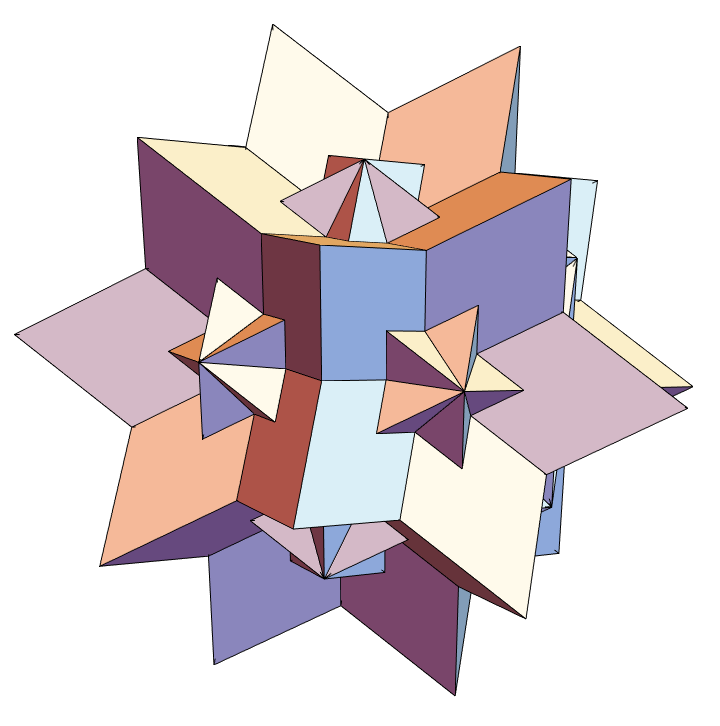- Great Cubicuboctahedron
- Great Icosacronic Hexecontahedron
- Great Rhombic Triacontahedron
- Great Snub Icosidodecahedron
- Great Stellated Dodecahedron
- Great Triakis Octahedron
- ...
There are many polyhedra with a rich variety of beautifully baroque names, often prefixed with "Great."
Q. What does "great" signify?

The Great Rhombic Triacontahedron.
